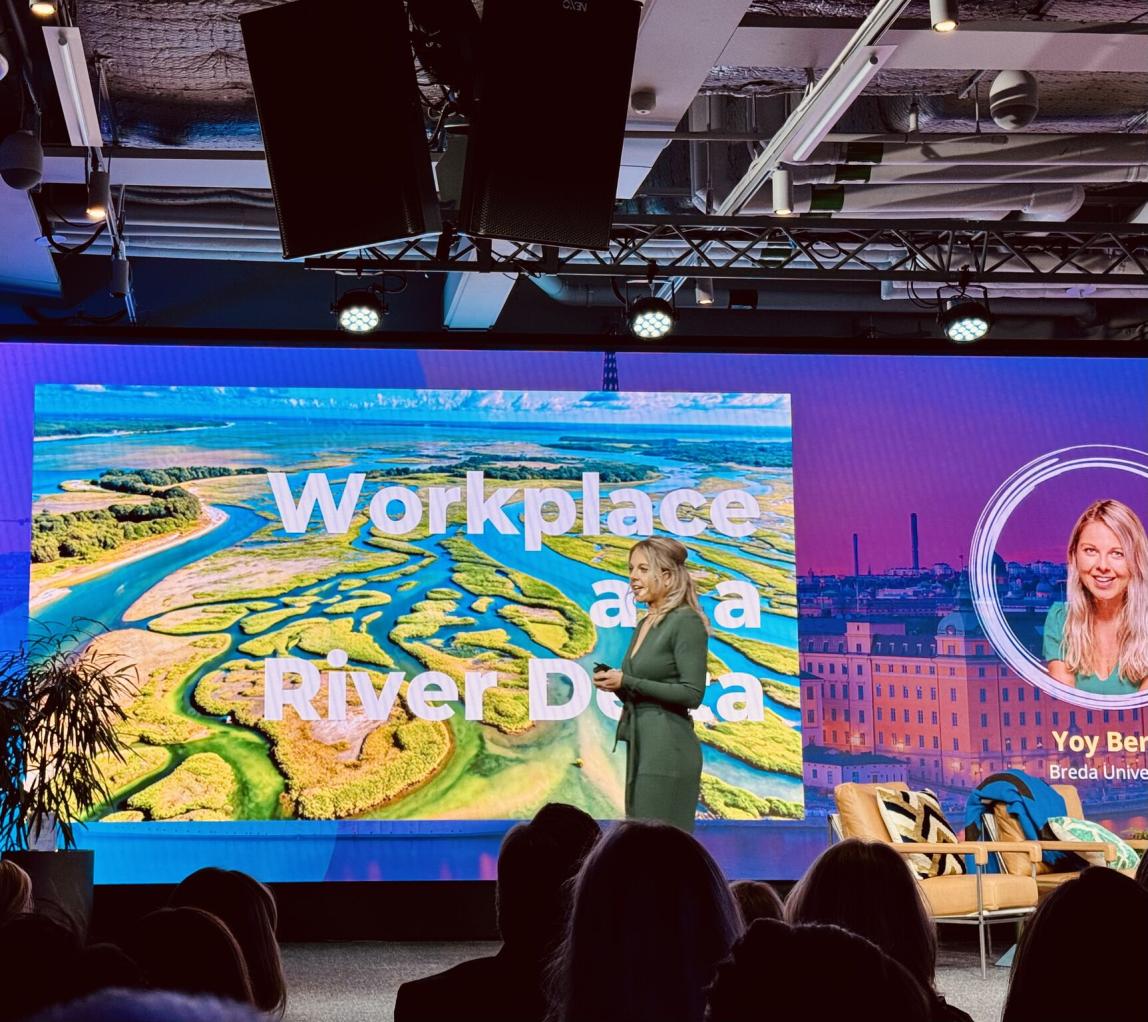
Beyond generations: Workplace identity flows
11/04/2025 - 11:53
- Expertise
- Industry
- Research
- Stories
Yoy Bergs (Sr. Lecturer in Organisational Behaviour & Sustainable HRM and PhD Candidate) was invited by IFMA to give the opening keynote at Nordic Workplace.
Between some awkward attempts to blend in with the Swedish attendees of the conference (apparently, "tak" is not “hello”) and consuming a professionally irresponsible amount of kanelbullar, I found myself immersed in meaningful conversations about the future of work, identity, and the evolving role of Facility Management (FM).
I kicked off my own talk by diving into that ever-popular discussion in organizations: managing generational differences. Yet, if we look at academic literature, we find little solid evidence that generational differences are strong or predictive when it comes to behavior at work. More importantly, when we talk about managing generations, the generational gap, and generational differences, don’t we only make that gap bigger? Our words create worlds (- David Cooperrider).
Across all ages, people are rethinking their careers. We’re seeing a clear shift:
- From linear to personal, flexible, and unexpected career paths
- From long-term loyalty to short-term and meaningful development
- The importance of meaningful careers, autonomy, and personal and professional growth
This shift is closely tied to what people value outside of work, and that’s where FM and workplace design can make a real difference.
Organizations can also no longer design workplaces solely around stability and long-term careers. Instead, we need environments that:
- Allow flexibility in when, where, and how people work
- Make space for personal projects and side ventures, care responsibilities, or creative downtime
- In some way, provide meaning beyond the job description
The workplace becomes more than just an office, it becomes a kind of river delta, where people’s multiple identities can flow together. Such workplaces can, in turn, possibly influence the experience of workers’ health, happiness, and productivity (cq. sustainable careers).
Some of my key insights during the event included:
- Connection is still one of the most important reasons young people come to the office.
- AI might soon be a sparring partner in stakeholder meetings, maybe even playing devil’s advocate.
- The rise of the FM analyst doesn’t mean you need to master statistics, just stay curious about what data can reveal.
- We can (and should) design workplaces that accommodate the diversity of identities people hold.
It was really great to present, to co-host a student workshop with Matt Tucker, and to represent BUas here. A big thanks to Hanna Hagberg, Malin Ljungbeck, and the organizing team for leading with the same care and energy that great FM teams bring to the workplace every day. I look forward to keep the conversation about the interface between research and the practice of FM going, with a particular focus on the future of work(places) and careers.
Want to read more?
- Ramarajan, L., & Reid, E. (2013). Shattering the myth of separate worlds: Negotiating nonwork identities at work. Academy of management review, 38(4), 621-644.
- Rudolph, C. W., Rauvola, R. S., Costanza, D. P., & Zacher, H. (2021). Generations and generational differences: Debunking myths in organizational science and practice and paving new paths forward. Journal of business and psychology, 36(6), 945-967.
- Seibert, S., Akkermans, J., & Liu, C. H. (2024). Understanding contemporary career success: A critical review. Annual Review of Organizational Psychology and Organizational Behavior, 11(1), 509-534.
Tucker, M. (2025). The rise of the FM analyst [Research report]. International Facility Management Association. https://ifma.foleon.com/research-reports/the-rise-of-the-fm-analyst/